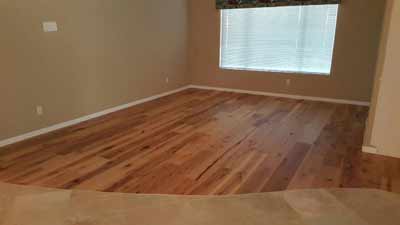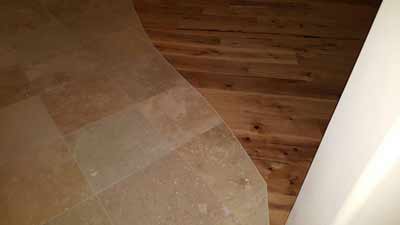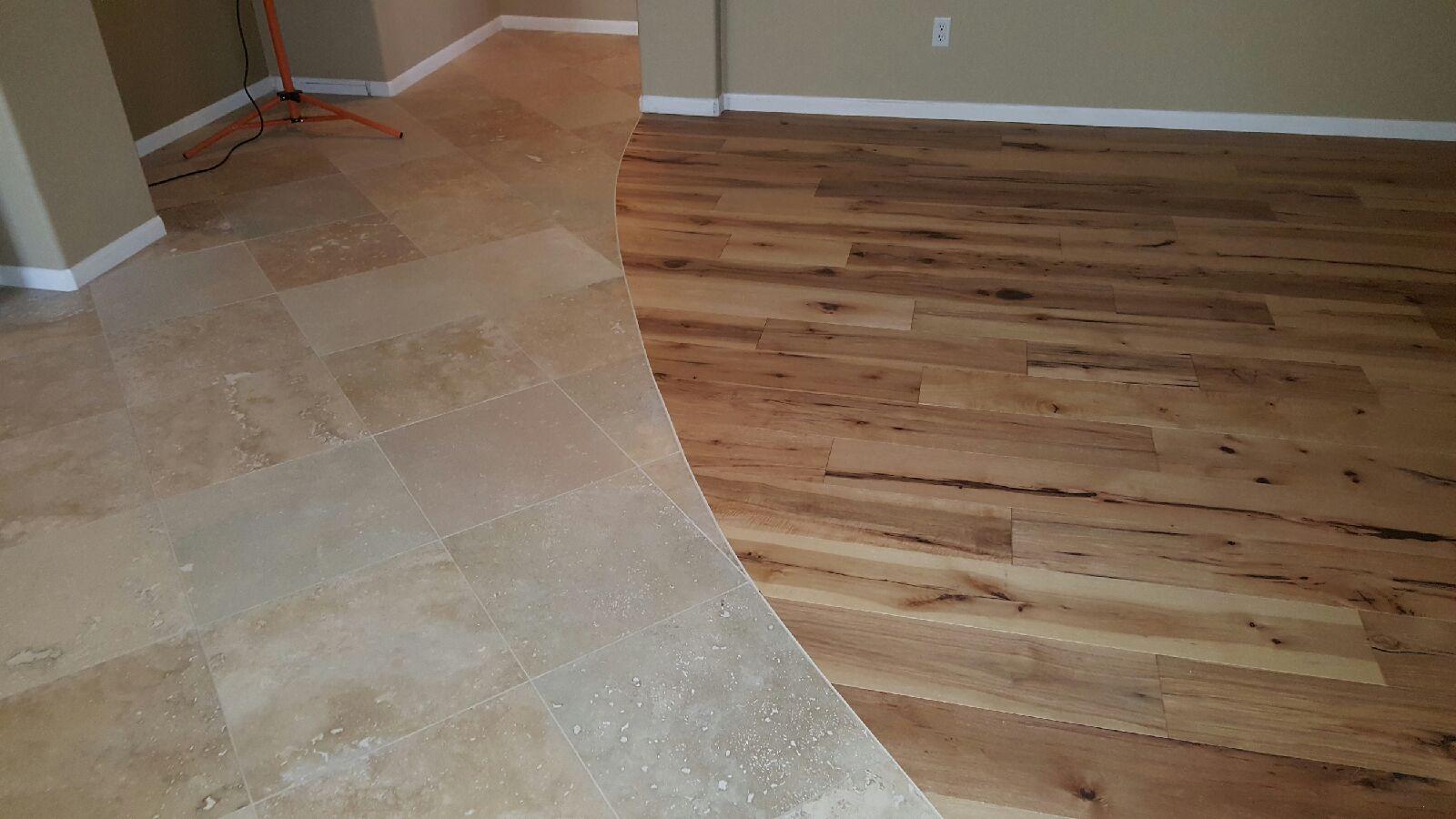Hardwood Flooring Installation
There is far more to wood flooring installation than putting down planks of timber and hoping for the best. There are numerous steps that must be completed prior to the beginning of any installation project. Olympic Hardwood has the expertise to address these issues, as they adapt and compensate to hardwood flooring in the Arizona climate. Olympic Hardwood's installation team will assess the physical location prior to installation, making all preparations to the underlying substrate so that the flooring product is properly placed. This includes removal of existing floor surfaces, assessment of overall structural integrity, addressing any moisture issues and making sure the substrate is clean and level.
All installations, repairs, and renovations are done by licensed subcontractors.

Hardwood Installation
Hardwood installed with transition to ceramic tile

Hardwood Installation
Hardwood installed with transition to ceramic tile

Hardwood Installation
Hardwood installed with transition to ceramic tile
Level Floor Surface
The surface in which the flooring is installed must be within a specific tolerance, most often 3/16 of an inch over 8 - 10 feet. Our team can fill in dips and gouges with compounds and sand areas that rise above the appropriate surface dimensions.
Hardwood Flooring Moisture Issues
One of the most important issues that must be addressed prior to your wood floor installation is moisture, both environmental and in the surface area. All wet work such as plastering and painting must be finished and concrete floors must have at least 90 days to cure. Even exterior moisture should be addressed—gutters and downspouts should be in place. If our team finds moisture to exceed tolerable levels, we can discuss methods to address this.
Nail Down
Nail down installation of hardwood flooring has specific guidelines that must be followed and issues that must be addressed prior to the installation of your hardwood floors. Sub floors must be inspected for structural integrity, as the nail could damage the subfloor allowing moisture to enter or uneven surfaces to form. Asphalt paper should be in place as a barrier to moisture and a preventative measure against squeaking in drier weather. Proper installation always includes expansion gaps. It is critical that your installation be done professionally as inexperienced installers can damage floors in ways that won’t be noticed for years, making reparation harder and more costly in the future.
Staple Down
Prior to the 1990's all hardwood floors were installed using nails. Pneumatic staplers were developed as a means of making istallation of floors much simpler and standardized, Olympic Hardwood can discuss with you the advantages and disadvantages of hardwood installation via nails which is dependent on environmental conditions, the physical location and even the type of wood used.
Glue Down
Glue down installation can be costly because it is time consuming process, it also requires a floor that is completely free of moisture, thus special consideration needs to be made of the substrate in which the floor is attached. Glue down method will result in a solid feeling floor which is quieter.
Floating
Floating installation is almost the opposite of the glue down method. Pre-engineered wood boards are laid down on a level and dry floor. This method is inexpensive and easy to do but will result in a floor that can be noisy when walked upon with shoes.